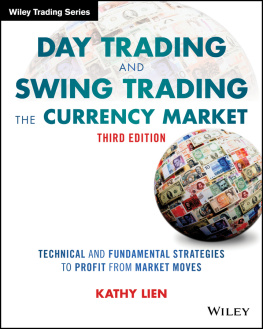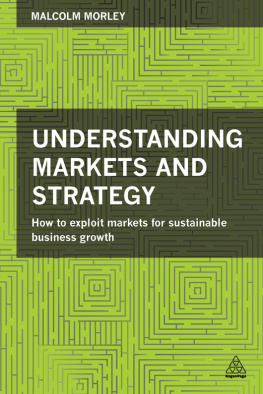First published 2015
by Routledge
2 Park Square, Milton Park, Abingdon, Oxon OX14 4RN
and in the USA and Canada
by Routledge
711 Third Avenue, New York, NY 10017
Routledge is an imprint of the Taylor & Francis Group, an informa business
2015 Thomas C. Lawton and Tazeeb S. Rajwani
The right of the editors to be identified as the authors of the editorial material, and of the authors for their individual chapters, has been asserted in accordance with sections 77 and 78 of the Copyright, Designs and Patents Act 1988.
All rights reserved. No part of this book may be reprinted or reproduced or utilised in any form or by any electronic, mechanical, or other means, now known or hereafter invented, including photocopying and recording, or in any information storage or retrieval system, without permission in writing from the publishers.
Trademark notice: Product or corporate names may be trademarks or registered trademarks, and are used only for identification and explanation without intent to infringe.
British Library Cataloguing in Publication Data
A catalogue record for this book is available from the British Library
Library of Congress Cataloging in Publication Data
The Routledge companion to non-market strategy / edited by Thomas
C. Lawton, Tazeeb Rajwani.
pages cm. (Routledge companions in business, management and
accounting)
Includes bibliographical references and index.
1. International business enterprisesManagement. 2. Comparative
management. 3. Strategic planning. I. Lawton, Thomas C., editor.
II. Rajwani, Tazeeb, editor.
HD62.4.R6956 2015
658.4012dc23
2014039642
ISBN: 978-0-415-71231-6 (hbk)
ISBN: 978-1-315-81938-9 (ebk)
Typeset in Bembo
by Sunrise Setting Ltd, Paignton, UK

The Routledge Companion to Non-Market Strategy presents the current state of the art in the field and identifies a rich set of research opportunities for improving our understanding of the non-market environment, for developing new insights to improve strategy formulation and selection, and for empirically evaluating the effectiveness of strategies for enhancing a firms performance and legitimacy.
Foreword from David P. Baron, University of Stanford, USA
The authors of this volume have an exciting project: dragging the strategy discipline beyond the clichs of market competition towards full recognition of regulators, family networks, not-for-profits, pressure groups, and state-owned enterprises as crucial actors in the contemporary environment. They advance a view in which markets are much more complex than traditionally seen.
Richard Whittington, Professor, University of Oxford, UK
A comprehensive, thorough, and contemporary examination of the field of non-market strategy. Each chapter is written by the leading figures of the discipline, and provides a complete and authoritative overview of the state of knowledge on some of the most central questions and debates. The whole spectrum of non-market activities is covered in this Companion from corporate political activities and social responsibility, to climate change. No other non-market strategy book covers the same range of topics in this depth. This superb book is indispensable for any scholar or student of non-market strategy.
Kamel Mellahi, Professor, University of Warwick, UK
16
States, markets, and the undulating governance of the global electric power supply industry
Sinziana Dorobantu and Bennet A. Zelner
The global electricity supply industry has cycled between state-centered and market-mediated models of governance since its inception in the 1880s. Initially funded and operated by private players with little government oversight, the industry soon experienced a prolonged trend of increasing government intervention that culminated in a series of nationalizations between 1945 and 1978. During the 1980s and 1990s this trend reversed, as dozens of countries implemented neoliberal reforms intended to restore the role of the market and reduce that of the state in the industrys operation. Though it is too early to be certain, the tide may once again be turning.
What accounts for this undulating pattern? Part of the explanation lies in the realm of realpolitik. Two world wars sensitized national governments in Europe and elsewhere to the strategic significance of the industry, which was deemed too vital to national security to be governed by the vagaries of the market. In many countries, strong economic growth during the following two decades was interpreted as evidence of the success of the state-centered model, which effectively subsidized the provision of a critical input to macroeconomic growth. However, by the late 1970s, decades of politicized operations, together with rising fuel prices following the oil shock of 1973, had so impaired industry performance in many cases that national governments turned back to the market and its promise of economic discipline. This trend gained momentum during the 1980s and 1990s, as privatization, regulatory restructuring, and other market-oriented reforms diffused throughout the global electricity industry.
Shifting scholarly views about governments ability to manage the economy paralleled these broad waves of change in industry governance. For economists, the key questions to ask in relation to any policy intended to govern the provision of infrastructure services are: when and how should governments intervene in markets in which the economics of existing technologies naturally limit competition, reducing social welfare and, ultimately, economic growth? Though the basic formulation of these questions had entered scholarly discourse by the end of the nineteenth century, the answers supplied by the academy have fluctuated over time. Support for state-centered solutions dominated such discourse through the middle of the twentieth century. In the 1960s, however, the libertarian views of the Chicago School became more prominent, and support for market-oriented approaches to infrastructure governance began to supplant the interventionist ideology that had prevailed earlier. By the 1980s, these views had elided with the broader ideological movement known as neoliberalism, which continued to dominate intellectual and policy discussions through the turn of the twenty-first century.
A global industry at its inception (1880s1942)
The electricity industry owes much of its initial development to multinational companies and international capital originating from such early industrializers as the United Kingdom, Germany, Belgium, France, Switzerland, and the United States. Electrification was a gradual process driven primarily by private investors drive to generate large returns in highly populated locations abroad, as well as by the needs of privately owned multinationals operating in capital-intensive industries (e.g., natural resources and agricultural commodities). Before the First World War, foreign ownership of electric utilities ranged as high as 905 percent in Latvia, Russia, and most of the countries in the Balkans; 75100 percent in Mexico and much of Latin America; and virtually 100 percent in colonized territories in Africa, Asia, and the Caribbean (Hausman, Hertner, and Wilkins 2011: 313).
Though government regulation of the electricity industry was minimal at first, municipalities soon became involved, either directly through the provision of electricity and gas (which were typically supplied together) or indirectly through the issuance of franchises dictating the terms of service provision (Troesken 1997, 2006). Discussions about the right approach to ensure an appropriate level of political control intensified in the early 1900s, by which point most European and North American cities had undergone electrification, the utilities serving them had expanded significantly, and long-distance transmission had grown in importance.











